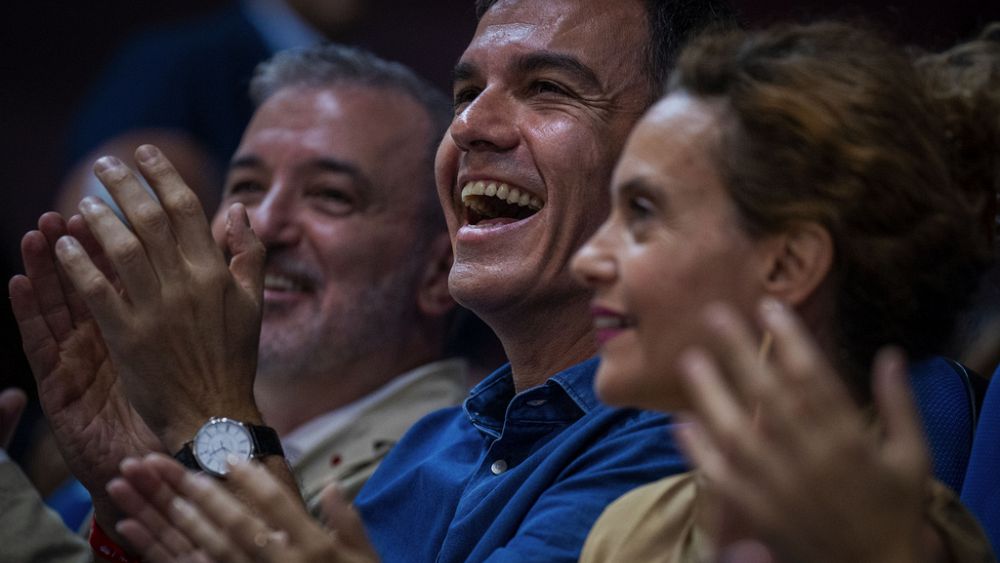
Pedro Sánchez, Spain’s prime minister since 2018, is facing re-election with recent ballots and most polls against him.
Battered and bruised after seeing his PSOE party take a hit in local and regional elections in May, Sánchez stunned his rivals by bringing forward general elections from December to this Sunday, smack in the middle of the sweltering Spanish summer.
Sánchez’s chances depend on a strong turnout for his Socialists, (who have surged in Catalonia while falling elsewhere), the revamped far-left coalition Sumar (Joining Forces) and a handful of smaller parties.
When asked repeatedly in the current campaign what he will do if he is ousted from the Moncloa Palace, the official residence and workplace of the Spanish prime minister, Sánchez has answered: “I am going to win this election. I am convinced that I am going to win.”
Spain’s elections will be a battle between two leftist and two rightist parties, teaming up to form possible coalitions.
The Socialist party leader has steered Spain through the COVID-19 pandemic thanks to a successful vaccination program and dealt with an inflation-driven economic downturn made worse by Russia’s invasion of Ukraine.
Fluent in English, Sánchez increased Spain’s profile in Brussels, where he is a firm EU backer and ally of European Commission President Ursula von der Leyen, despite her belonging to Europe’s conservatives.
But the 51-year-old’s dependency on fringe parties, including separatist forces from Catalonia and the Basque Country, to keep his minority coalition going and his passing of a slew of liberal-minded laws, may cost him his job and be an all-or-nothing gamble.
Sánchez has embarked on a flurry of interviews in Spanish media and held rallies across Spain, hoping that he can pull off yet another surprise and stay in office. His chances will depend on mobilising a demoralised left.
A former basketball player and economics professor, Sánchez and his wife have two daughters.